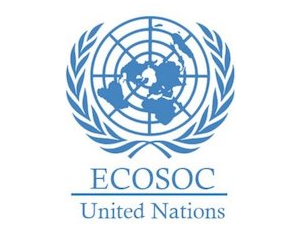CFHI Sexual Health in Ecuador Program Highlights Constitutional Priorities
In 1998 Ecuador was the first Latin American country to name reproductive and sexual health as constitutionally guaranteed human rights. Ecuador followed this by strengthening its stance on health as a human right in its new constitution. The document, adopted in 2008, states:
Article 32. Health is a right guaranteed by the State and whose fulfillment is linked to the implementation of other rights, among which include the right to water, food, education, sports, work, social security, a healthy environment and others that support quality of life.
The State shall guarantee this right by means of economic, social, cultural, educational, and environmental policies; and the permanent, timely and non-exclusive access to programs, actions and services promoting and providing integral

healthcare, sexual health, and reproductive health. The provision of healthcare services shall be governed by the principles of equity, universality, solidarity, interculturalism, quality, efficiency, effectiveness, prevention, and bioethics, with a gender and generational approach.
Walking the Walk
Not only has Ecuador guaranteed health as a right (something the US has had difficulty even agreeing on), but it specifies guiding principles which are the foundation for enacting this right. In the realm of sexual and reproductive health, the adoption of this article into the Ecuadorian constitution has created funding and support for real action on the ground. For a traditionally Catholic country this is a big step. Ecuador is not just talking the talk, but is walking the walk. Ecuadorian nonprofit organizations, such as Copprende are living out this promise through public health education, outreach to pharmacies, clinicians, and patients. Copprende functions largely through public health programs targeted to high school/ university students, and a community education program. Copprende focuses on prevention through education, via lectures, workshops, conferences and health fairs.
CFHI Program Volunteers Get Involved
Challenges to making ideals reality still exist, including disparities between urban and rural areas, yet work is being carried out. CFHI Programs in Ecuador now allow participants access to a health care system in transition, one which is making decisions, sacrifices, and priorities to realize it’s constitutional guarantees of health access. CFHI’s newest program, Sexual Health as a Human Right: Ecuador’s Unique Model provides volunteers interested in global and public health unique entrée to the sexual and reproductive health revolution taking place in Ecuador’s schools, homes, pharmacies, and clinics, as the rights of sexual consent, access to birth control and safe sex measures are realized.
How does Ecuador’s approach to sexual and reproductive health education differ from your home country? What do you think about its method of outsourcing education to nonprofit organizations? Let us know your thoughts below.
Search here anything
Categories
- Academic Partnerships (4)
- CFHI Model (28)
- Cultural Humility (44)
- Ethics (43)
- Gender Equality (1)
- Global Health (68)
- Global Health Education (88)
- Global Health Elective (34)
- Human Rights (1)
- LGBT (1)
- Local Experts (51)
- medical electives (41)
- Promotional Works (1)
- Public Health (18)
- Rotations (29)
- Student Spotlight (7)
- study abroad (10)
- Uncategorized (35)
- Volunteering internationally (50)
Tags
Categories
- Academic Partnerships (4)
- CFHI Model (28)
- Cultural Humility (44)
- Ethics (43)
- Gender Equality (1)
- Global Health (68)
- Global Health Education (88)
- Global Health Elective (34)
- Human Rights (1)
- LGBT (1)
- Local Experts (51)
- medical electives (41)
- Promotional Works (1)
- Public Health (18)
- Rotations (29)
- Student Spotlight (7)
- study abroad (10)
- Uncategorized (35)
- Volunteering internationally (50)





